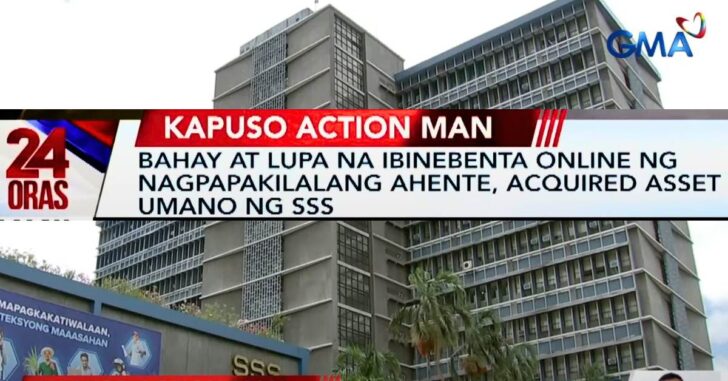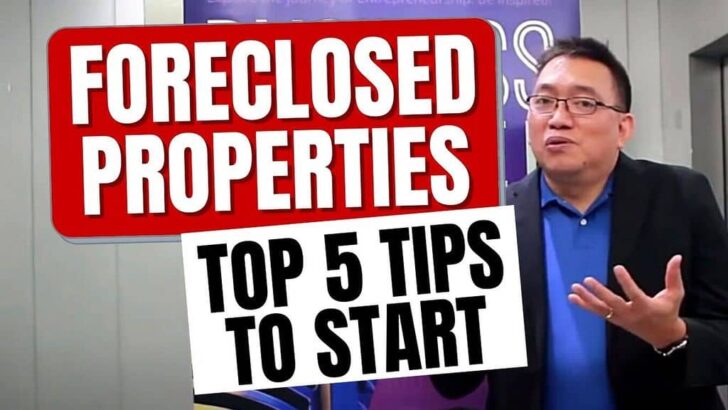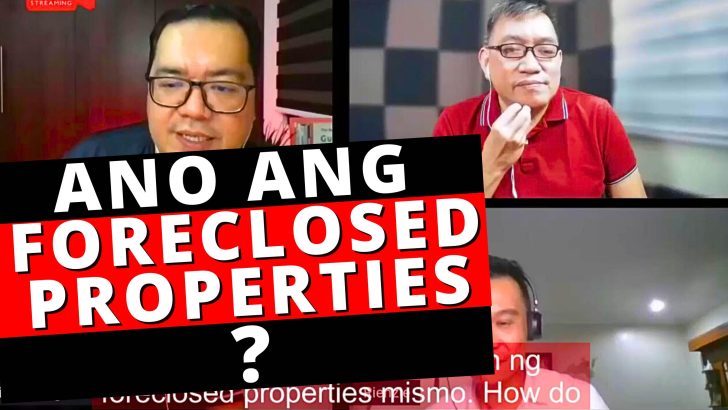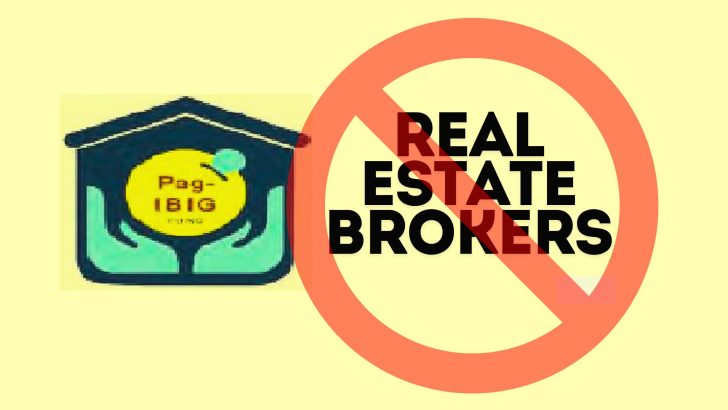A post by Cherry Castillo
I have come across many comments from OFW’s who want to invest in real estate in the Philippines but have no one to rely on to do the legwork in the country – choosing a property, collecting rents, etc. There are also those who want to invest in real estate but are more conservative or risk-averse, or those who only have a small amount set aside for investment.
For the beginning real estate investor or the OFW investor, one solution is to invest in a Real Estate Investment Trust (REIT). Please continue reading about REITs below…
What is a REIT?
A “Real Estate Investment Trust” or “REIT” is a stock corporation established principally for the purpose of owning income-generating real estate assets. A corporation becomes a REIT and qualified to avail of the incentives and privileges of the REIT Act when its REIT Plan is rendered effective by the Commission and its listing as a REIT is approved by the stock exchange.
REIT Law and Regulations
Republic Act (R.A.) No. 9856 “An Act Providing the Legal Framework for Real Estate Investment Trust and For Other Purposes” lapsed into law on December 17, 2009. It was published in two newspapers of general circulation on January 25, 2010. Thus, its effectivity is on February 9, 2010 or fifteen (15) days from such publication. Please click on this link for a copy of the full text of R.A. No. 9856.
Many investors were excited with the passage of R.A. No. 9856 but everybody had to wait first for its Implementing Rules and Regulations (IRR). Definitely, the release will be very soon as the Securities and Exchange Commission (SEC) released just last Monday, April 19, 2010, the draft (IRR) for comments until April 26, 2010 (a copy of the draft REIT IRR is now available here: Draft REIT Act of 2009 Implementing rules and regulations (IRR) released by the SEC ). A summary of the salient features of the RA 9856 IRR was prepared by Businessworld, in its article entitled “Draft REIT rules issued by regulator” which can be accessed at http://www.bworldonline.com/main/content.php?id=9485.
Philippine REITs
SM Prime Holdings, Inc., the country’s largest mall operator, and property giant Ayala Land, Inc. (ALI) are looking at raising $300 million each through a REIT. [See http://www.smprime.com/smprime/index.php?p=587&type=2&sec=49&aid=5466 and http://www.ayalaland.com.ph/article/ayala_land_to_raise for more information on the plans of SM Prime and ALI.] This early, the country’s real estate giants have already set their sights on the REIT and have engaged financial advisers to guide them with their plans. This is a clear sign that the REIT is bound to be a gold mine.
Why invest in a REIT?
A REIT is entitled to several tax incentives, so much so that the Department of Finance has warned that the government stands to lose billions of pesos due to the passing of the REIT Act and IRR. Of course, as investors, we want to pay the least tax as legally possible. Based on the draft IRR, the following are some of the incentives of REITs:
- A REIT shall be subject to regular corporate income tax but not minimum corporate income tax (MCIT);
- Any sale or transfer of real property to a REIT, including the sale or transfer of any and all security interest thereto shall be subject to fifty (50%) percent of the applicable DST;
- All applicable registration and annotation fees relative or incidental thereto shall be fifty (50%) of the applicable registration and annotation fees;
- Any sale, barter, exchange or other disposition of listed investor securities through the Exchange, including cross or block sales with prior approval from the Exchange shall be exempt from DST;
- Any initial public and secondary offering of investor securities shall be exempt from the IPO tax imposed under the NIRC;
- The gross sales from any disposal of real property or gross receipts from the rental of such real property shall be subject to VAT;
- A REIT shall not be considered as a dealer of securities and shall not be subject to VAT on its sale, exchange or transfer of securities forming part of its real estate-related assets.
Also, a REIT shall be required to distribute at least ninety (90%) percent of its distributable income every year so investors get regular dividends. In addition – this is good news for OFWs – overseas Filipino investors are exempt from the dividends tax for seven (7) years from the effectivity of the tax regulations implementing the Act. If a domestic corporation is the REIT investor, the dividends will be exempt from tax.
Aside from dividends of course, you also stand to gain if the shares appreciate. I think that REIT is a marriage of real estate and stocks – two of the best investment vehicles that would produce the most wealth. If you look at the world’s or the country’s wealthiest persons, you will see that many grew their wealth from real estate (think Henry Sy, the Ayala family) or stocks (think Warren Buffet). So, no need to think which one between real estate and stocks is better!
How do we invest in a REIT?
You may invest in a REIT by subscribing to or purchasing shares of stock of the REIT. The investment amount may be affordable to most people, and you can purchase a blue chip REIT in the Philippines like that of Ayala Land, Inc. or SM Prime Holdings, Inc. You may even choose to put your monthly savings in a REIT instead of banks which earn very little interest.
Comments about REIT?
If you have any comments on the draft IRR, please send them to the SEC. On my part, I’m planning to invest my monthly savings in Ayala and SM prime REITs (after I finish paying off my debts to my husband, tsk tsk). I wish to buy REIT stocks on the first day and watch them skyrocket later! *crosses fingers* I also hope to be part of the team advising REITs as I think it’s really the next wave, so to speak. REITs are also all the rage in other countries.
So… I’ll let you know once the IRR is finalized. Till then, let’s chew on the draft and envision the endless possibilities… like a Foreclosure Philippines or RYP Realty REIT right up there with Ayala and SM Prime! That would be awesome! The P300 million minimum capitalization is doable if you break it up into small amounts – just around P100k for each subscriber of Foreclosure Philippines!
Cherry Castillo
Cherry is my wife. She is a certified public accountant (CPA) and lawyer.
—
To our success and financial freedom!
Jay Castillo
Real Estate Investor
Real Estate Broker License #: 20056
Blog: https://www.foreclosurephilippines.com
Click here to contact me via E-mail
Mobile phone (Call/SMS): +639178843882
Follow me in twitter:http://twitter.com/jay_castillo
Become a Fan in Facebook:Foreclosure Philippines fan page
Text by Jay and Cherry Castillo. Copyright © 2010 All rights reserved.
PS. Are you a new visitor? Click here NOW to start learning more about foreclosure investing in the Philippines and don’t forget to subscribe to e-mail alerts and get notified of new listings of bank foreclosed properties, public auction schedules, and real estate investing tips. Inbox getting full? Subscribe through my RSS Feed instead!








Pingback: Top 10 Ways to Make Money in Real Estate – Real Pinas
madam cherry,if reits starts can you pls. send me an e-mail.i am doing 3 jobs so i have no time to read news as often as i wanted to.i will be forever grateful thanks
Pingback: Republic Act No. 9856 - The Real Estate Investment Trust (REIT) Act of 2009 full text - ForeclosurePhilippines.com
very well explained!
Has been hearing about the REIT for quite sometimes now. Meron na ba itong IRR? Where will this be traded? Will it be traded the same way stocks are being traded?
Pingback: 7 questions you need to ask to avoid investment scams
hello mam cherry and sir jay..Is REIT available in the phils?… any corporation who has issued REIT shares?.. has anyone have a personal experienced already with it comes to REIT?….thanks
Pingback: Approved Implementing Rules and Regulations (IRR) of the REIT Act of 2009 released by the SEC
This looks promising. Where can I get more information on how to invest in an REIT?
This is great! I am planning to subscribe when it becomes available. With the passage of REIt andthe soon to be implemented PERA law, para nang tayo nasa US.
.-= real-estate investor´s last blog ..REIT | Real Estate Investment Trust =-.
Hi cool_78, nice to see you have a new blog! Yes, this would really be good way for Pinoys to invest in real estate and its about time that we have our own REIT’s in the Philippines.
Pingback: Draft REIT Act of 2009 Implementing rules and regulations (IRR) released by the SEC
based on your first sentence you could actually turn that into a business of property management for ofws. you would be serving the smaller type of investor instead of the large clients of major developers like ayala. start small and see where it goes. another business idea would be to develop a lessor/lessee database which you can sell via subscriptions and even host advertising. the biggest problem of real estate investors and renters is finding good tenants and landlords. in truth filipinos are not good tenants and by the same token landlords can be abusive. you can gather lessor/lessee information like rental history, payment history (ie. late/ontime), job history, complaints, etc. and then give each a rating to determine their quality as a renter or rentee. if you build up a client list of ofws as a property management company the information you gather from them will feed directly into your database.
Excellent insights Ed, thanks! I am seriously considering the ideas you have mentioned above, thanks again for sharing!
I think RYP can take a look at the possibility of venturing in REIT. What do you think Jay? 🙂
Hi DJ, yes we can venture into this in the future. However, we still have lots of things to do like winning the challenge and registering our corporation with the SEC, etc. 🙂
Pingback: Tweets that mention Real Estate Investment Trusts (REITs) – The next big thing in real estate